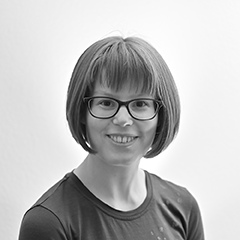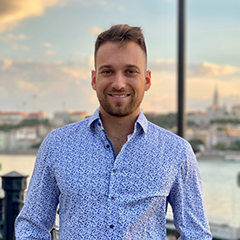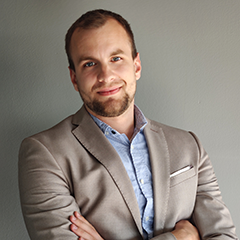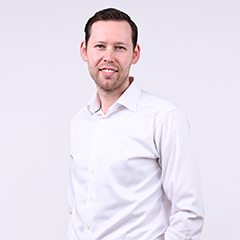The third cohort of UniBE Venture Fellows
Predicting outcome of comatose patients, enhancing taste in food by new molecular mechanisms, treating the most common type of arthritis and enhancing the longevity of ureteral stents, these are the goals of the innovation projects that have been selected for the third round of the Venture Fellowship Program at the University of Bern and the Inselspital.

This year the Innovation Office of the University of Bern can already welcome the third cohort of the UniBE Venture Fellowship program. Four new scientists will start their Fellowships in the coming months with the goal to transfer knowledge and novel technologies into economy and society. They were chosen out of 14 applicants who applied for the third call in December 2023.
A new AI tool for predicting outcome for comatose patients

Artificial intelligence (AI) is currently on everyone’s lips. Florence Aellen, postdoctoral researcher at the Institute of Computer Science at the University of Bern, is using AI to predict the outcome of patients who are comatose after a cardiac arrest. Every year more than five million people worldwide suffer a cardiac arrest and more than half of these patients stay comatose longer than 24 hours. Aellen is developing a tool that uses electrical activity of the brain, measured with electroencephalography and AI-based algorithms to predict the chances of patients to wake up. The AI-based prediction will provide valuable information to clinicians and aid in the decision-making process, helping them to optimize patient care.
Next generation flavor enhancers to revolutionize umami tastes

Daniel Batora, PhD candidate in the lab of Prof. Jürg Gertsch at the Institute of Biochemistry and Molecular Medicine, has discovered and advanced a novel class of natural flavor enhancers to boost the umami (the pleasant savory) taste in food. The natural molecules modulate a receptor on the human tongue by a new mechanism which enables a more intense and richer taste experience. The first blinded human taste panels have already shown a significant taste improvement. With the planned foodtech startup, he is addressing consumer demands for clean label and flavor in rapidly growing markets such as meat alternatives and low-calorie food by leveraging molecular mechanisms.
Micro-cushions for damaged joints

Osteoarthritis is the most common type of arthritis, affecting over 500 million people globally. Current treatments for the disease are mainly focusing on alleviating symptoms and often end up in surgical joint replacement. Gregor Bordon, PhD graduate at the Department of Chemistry, Biochemistry and Pharmaceutical Sciences, is proposing a novel treatment option for osteoarthritis. His formulation can be imagined as micro-cushions for joints. Combined with its anti-inflammatory and anti-fibrotic effects it is not only addressing symptoms but also the causes of osteoarthritis.
The world’s first non-invasively cleanable ureteral stent

The Venture Fellowship of Cornel Dillinger will be hosted at the ARTORG Center for Biomedical Engineering after his transfer from the Department of Mechanical and Process Engineering at ETH Zurich. He is developing a novel technology to enhance the longevity of ureteral stents. Ureteral stents are used to sustain urinary drainage from the kidney to the bladder in case of obstructions such as kidney stones, ureteral strictures, or tumors. Nowadays these stents have to be replaced every two to three months because of pollution of the stents, an oftentimes painful intervention for patients. Dillinger’s new technology allows the stents to be cleaned non-invasively using ultrasound, therefore enhancing their longevity.
Venture Fellowship
The Venture Fellowship Program at the University of Bern
The Venture Fellowship Program at the University of Bern enables four young researchers each year to continue their translational research for one year. The program aims to assess the technical feasibility (Proof-of-Concept) of their projects and prepare for their subsequent commercialization. The Innovation Office at the University of Bern supports them with consulting, mentoring, and networking, in cooperation with be-advanced – the startup coaching platform of the Canton of Bern. The fellowships, each endowed with CHF 100’000, are jointly funded by the University of Bern, the ARTORG Center for Biomedical Engineering Research, and the Inselspital. In addition, the Swiss Federal Institute of Intellectual Property (IPI) supports the program with guided patent searches and patent landscape analyses. The next call for proposals will be published in September 2024.
